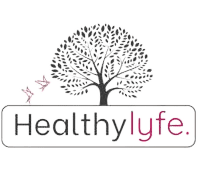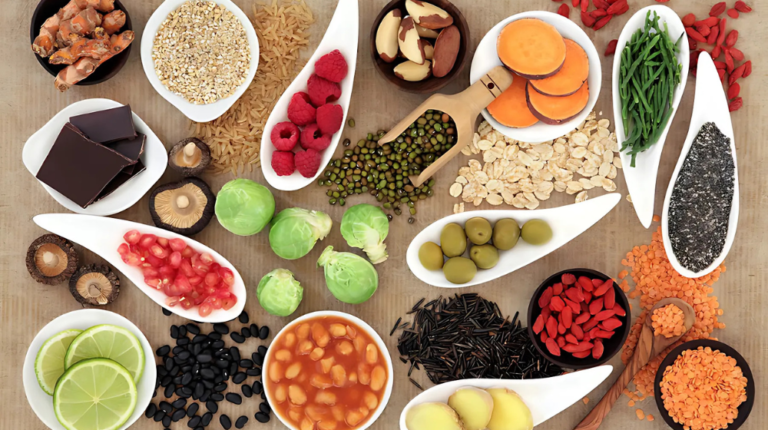Boost your workouts and recovery with these nutrition hacks. Learn the best meals, key nutrients, and hydration tips for optimal performance.
Introduction
Achieving peak performance in your workouts and optimizing recovery afterward is not just about how hard you train—what you eat plays an equally critical role. Proper nutrition fuels your body for intense exercise, enhances endurance, and helps you recover faster, reducing the risk of injury and fatigue. Whether you’re a seasoned athlete or just starting your fitness journey, understanding how to nourish your body before, during, and after your workouts can make a significant difference. In this guide, we’ll explore essential nutrition hacks to help you power through your training sessions and bounce back stronger, ensuring you’re always ready for the next challenge.
The Role of Nutrition in Fitness {1}
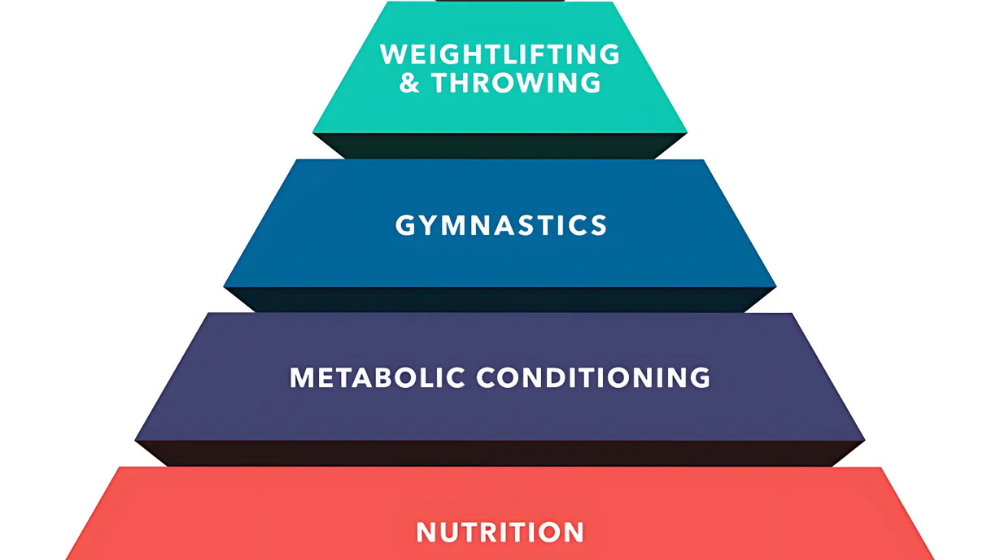
Fueling Your Workouts
The food you consume before exercise provides the energy your body needs to perform at its peak. Carbohydrates are the primary source of fuel, while fats and proteins play supporting roles in sustained energy and muscle maintenance.
Supporting Muscle Recovery
Post-workout nutrition is essential for muscle repair and growth. Consuming protein-rich foods along with carbohydrates helps replenish glycogen stores and aids in the recovery process, reducing soreness and enhancing your next performance.
Hydration and Micronutrients
Staying hydrated and ensuring sufficient intake of vitamins and minerals are equally important. These nutrients support metabolic processes, reduce the risk of cramps, and promote overall physical health, enabling you to achieve long-term fitness goals.
Why Nutrition Matters for Workouts
Energy for Performance
Proper nutrition fuels your body, providing the energy needed to perform at your best. Carbohydrates are the primary energy source for high-intensity workouts, while fats offer sustained fuel for longer, moderate sessions. Without adequate energy, your performance and endurance can decline.
Muscle Repair and Growth
Workouts break down muscle fibers, and nutrition helps repair and rebuild them. Protein provides essential amino acids for recovery, while carbohydrates replenish glycogen stores to prepare your muscles for future exercise.
Preventing Fatigue and Injuries
The right nutrients reduce fatigue and help prevent injuries by supporting recovery processes. Key micronutrients like calcium, magnesium, and potassium promote muscle function, while antioxidants combat inflammation from intense physical activity.
Optimizing Your Fitness Goals
Whether your goal is strength building, endurance training, or weight loss, nutrition plays a critical role. Eating the right balance of macronutrients and micronutrients ensures you maximize your workout results and achieve your fitness objectives efficiently.
Key Nutrients for Recovery
Protein for Muscle Repair
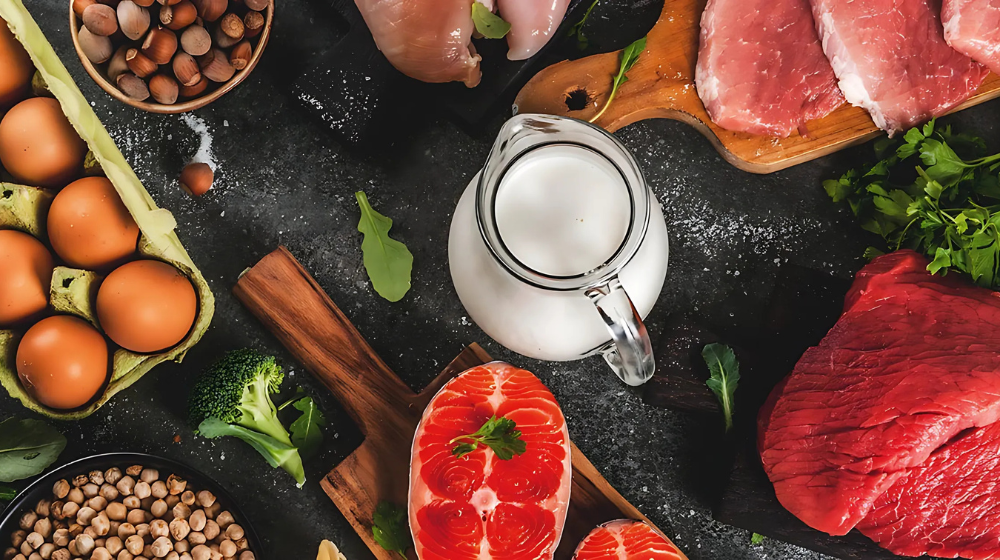
Protein is crucial for rebuilding and repairing muscle tissue after workouts. Lean meats, eggs, dairy, and plant-based sources like tofu and legumes provide the amino acids necessary for recovery and muscle growth.
Carbohydrates for Glycogen Replenishment
After exercise, carbohydrates help restore glycogen stores depleted during physical activity. Whole grains, fruits, and starchy vegetables such as sweet potatoes are excellent choices to refuel and enhance recovery.
Healthy Fats to Reduce Inflammation
Healthy fats, like those found in avocados, nuts, seeds, and fatty fish, aid in reducing inflammation. Omega-3 fatty acids are particularly beneficial for promoting faster recovery and overall health.
Hydration and Electrolytes
Rehydrating after exercise is essential. Consuming water and replenishing electrolytes like sodium, potassium, and magnesium helps maintain fluid balance, prevent muscle cramps, and support cellular recovery.
Vitamins and Minerals for Recovery
Micronutrients like vitamin C, vitamin D, zinc, and magnesium play a key role in recovery. They help repair tissues, boost immune function, and reduce inflammation, ensuring your body is ready for the next workout.
Pre-Workout Nutrition Hacks
Focus on Carbohydrates for Energy
Carbohydrates are the primary fuel for your workouts. Opt for easily digestible carbs like fruits, oats, or whole-grain toast to provide a quick energy boost. Aim to consume these 30-90 minutes before exercising.
Include Protein for Sustained Performance
Adding a source of protein helps prevent muscle breakdown and supports endurance. Quick options like Greek yogurt, protein shakes, or hard-boiled eggs are excellent choices for pre-workout nutrition.
Stay Hydrated
Hydration is key to peak performance. Drink water consistently throughout the day and have 8-16 ounces about 30 minutes before your workout to stay energized and avoid fatigue.
Time Your Meals Strategically
For optimal digestion and energy, eat a balanced meal 2-3 hours before your workout. For smaller snacks, aim for 30-60 minutes before to ensure your body is ready without discomfort.
Consider a Caffeine Boost
A small dose of caffeine from coffee or tea can enhance focus and endurance. Consume it 30-60 minutes before your workout, but avoid excessive amounts to prevent jitters or dehydration.
Avoid High-Fat or Heavy Meals
Fatty or greasy foods can slow digestion and make you feel sluggish. Choose lighter, nutrient-dense options to ensure your body feels light and ready for action.
The Post-Workout “Anabolic Window”
What is the Anabolic Window?
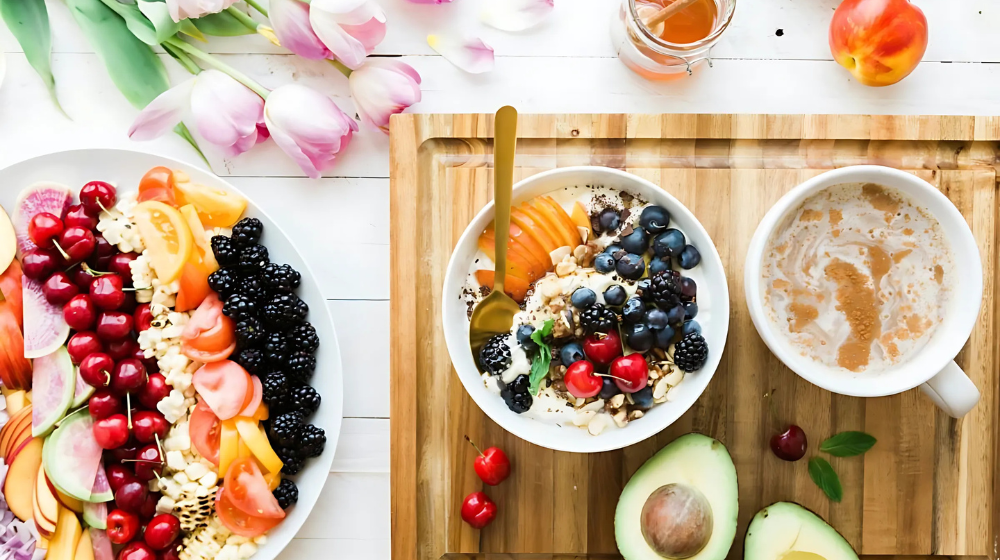
The “anabolic window” is the period immediately following a workout, usually 30 to 60 minutes, when your body is highly receptive to nutrients for muscle repair and recovery. During this time, your muscles efficiently rebuild glycogen stores and synthesize protein to repair damaged tissues.
Why Timing Matters
Consuming the right nutrients shortly after a workout can maximize recovery and muscle growth. While the exact timing can vary, delaying post-workout nutrition may reduce the effectiveness of these processes.
Essential Nutrients for the Anabolic Window
- Protein: High-quality protein sources, such as whey, eggs, or plant-based options, provide essential amino acids for muscle recovery. Aim for 20-30 grams post-workout.
- Carbohydrates: Simple carbohydrates like fruits, rice, or recovery shakes replenish glycogen stores quickly and enhance recovery when paired with protein.
- Hydration and Electrolytes: Replenishing fluids and electrolytes is vital to restore balance and aid the recovery process.
Is the Anabolic Window a Myth?
While the anabolic window is a helpful concept, recent research suggests that the window for effective nutrient intake may extend beyond the traditional 30-60 minute timeframe. Nonetheless, immediate post-workout nutrition remains important for speeding up recovery, especially for those with intense training schedules.
Practical Tips
- Have a post-workout meal or shake ready to consume soon after exercising.
- Combine protein and carbohydrates to maximize recovery benefits.
- Ensure your overall daily nutrition supports your fitness goals for long-term success.
Protein for Muscle Recovery
The Importance of Protein After Exercise
Protein is essential for repairing and rebuilding muscle fibers that are broken down during exercise. Post-workout, your muscles are in recovery mode, and protein provides the amino acids needed for growth and repair.
How Much Protein Do You Need?
The amount of protein needed after exercise depends on factors like body weight, training intensity, and fitness goals. A general recommendation is 20-30 grams of protein within 30-60 minutes post-workout to support muscle protein synthesis and recovery.
Best Sources of Protein for Recovery
- Whey Protein: Known for being quickly absorbed and rich in essential amino acids, making it ideal for recovery.
- Eggs: High-quality protein and easy to digest, eggs are a great recovery food.
- Lean Meats: Chicken, turkey, and lean cuts of beef offer a substantial amount of protein to aid muscle repair.
- Plant-Based Protein: Options like lentils, tofu, and quinoa provide effective plant-based protein for muscle recovery.
Protein Timing and Muscle Growth
Consuming protein immediately after a workout may enhance muscle recovery and growth. Pairing protein with carbohydrates helps replenish glycogen stores and optimizes nutrient absorption.
Tips for Optimal Protein Intake
- Consume a protein-rich snack or meal within 30-60 minutes of your workout.
- Protein shakes are convenient for quick post-workout nutrition.
- Include a variety of protein sources to ensure you’re getting all the essential amino acids.
Replenishing Glycogen Stores
Why Glycogen Matters for Recovery
Glycogen is the primary form of stored carbohydrates in your muscles and liver, providing energy during exercise. Replenishing glycogen after a workout is essential for recovery and to ensure you’re prepared for your next training session.
Carbohydrates for Glycogen Restoration
After exercise, your body is primed to absorb carbohydrates and convert them back into glycogen. Consuming carbs within 30-60 minutes post-workout helps maximize glycogen replenishment.
Best Sources of Carbohydrates for Glycogen Replenishment
- Fruits: Bananas, apples, and berries are natural sources of sugar that quickly replenish glycogen stores.
- Whole Grains: Brown rice, quinoa, and oats provide complex carbs that offer a steady release of energy.
- Starchy Vegetables: Sweet potatoes, potatoes, and squash are excellent options for replenishing glycogen.
- Sports Drinks or Recovery Shakes: These provide both simple carbohydrates and electrolytes for quick recovery.
How Much Carbohydrates Do You Need?
Aim to consume 1-1.5 grams of carbohydrates per kilogram of body weight within 30 minutes to 2 hours post-workout to effectively restore glycogen stores.
Combining Carbs with Protein
Pairing carbohydrates with protein in your post-workout meal can enhance recovery. A 3:1 or 4:1 ratio of carbs to protein is commonly recommended for optimal glycogen replenishment and muscle repair.
Tips for Glycogen Replenishment
- Mix simple and complex carbs for immediate and sustained energy.
- Stay hydrated with water or electrolyte drinks to support glycogen storage.
- Consume a balanced meal with both carbs and protein within an hour of finishing your workout.
Hydration and Electrolytes
The Importance of Hydration for Recovery
Hydration is crucial for recovery, as your body loses fluids through sweat during exercise. Replenishing these fluids afterward helps maintain muscle function, prevent fatigue, and support overall recovery.
Electrolytes: Why They Matter
Electrolytes—sodium, potassium, magnesium, and calcium—are essential for fluid balance, nerve function, and muscle contractions. Sweating depletes these minerals, so replenishing them post-workout is key to avoiding cramps and supporting recovery.
Best Sources of Electrolytes
- Sports Drinks: Designed to replenish both fluids and electrolytes, especially sodium and potassium.
- Coconut Water: A natural source of electrolytes like potassium and sodium, great for hydration and muscle recovery.
- Fruits and Vegetables: Bananas, oranges, spinach, and sweet potatoes are excellent sources of electrolytes like potassium and magnesium.
- Electrolyte Tablets or Powders: Convenient and effective options to quickly replenish lost electrolytes after exercise.
How Much Water Should You Drink?
After exercise, drink at least 16-24 ounces of water for every pound of body weight lost. The amount will vary depending on sweat levels, workout duration, and intensity.
Tips for Rehydration
- Stay hydrated throughout the day, not just after exercise, to maintain optimal fluid balance.
- Replenish electrolytes post-workout, especially after intense sessions involving heavy sweating.
- Avoid sugary drinks, which can hinder hydration; opt for water, coconut water, or electrolyte drinks instead.
Nutrition Hacks for Faster Recovery
Prioritize Protein for Muscle Repair
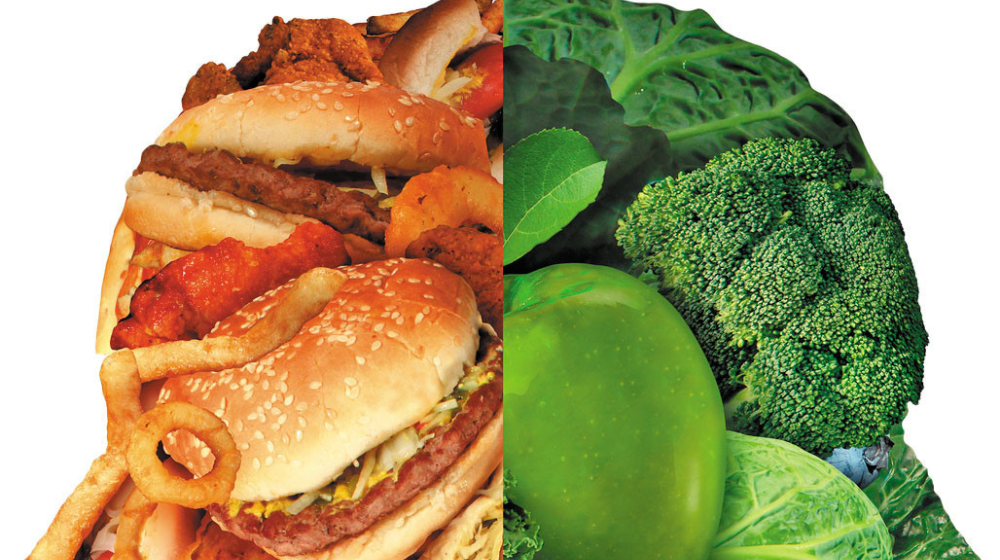
Consuming 20-30 grams of high-quality protein within 30-60 minutes after your workout supports muscle repair and growth. opt for sources like whey protein, chicken, or plant-based options like lentils to ensure effective recovery.
Combine Carbs and Protein for Optimal Recovery
Pairing carbohydrates with protein helps replenish glycogen stores and promotes muscle protein synthesis. A 3:1 or 4:1 ratio of carbs to protein is ideal. Consider a meal like rice with chicken or a smoothie with fruits and protein powder for maximum recovery.
Don’t Forget Healthy Fats
Healthy fats, such as those found in avocados, nuts, and olive oil, play a crucial role in reducing inflammation and supporting overall recovery. Omega-3 fatty acids, particularly from fatty fish like salmon, are great for minimizing post-workout inflammation.
Hydrate Well to Support Recovery
Hydration is essential for recovery. Drink plenty of water throughout the day, and replace lost electrolytes after intense workouts with coconut water, sports drinks, or electrolyte tablets. Proper hydration helps with muscle repair and prevents cramps.
Opt for Anti-Inflammatory Foods
Incorporating anti-inflammatory foods like berries, leafy greens, turmeric, and ginger can help reduce muscle soreness and speed up healing after a workout. Including these in your meals or smoothies will enhance recovery.
Prioritize Sleep and Rest
Sleep is critical for muscle recovery. Aim for 7-9 hours of quality sleep each night to allow your body to repair muscles and replenish glycogen stores. Adequate rest maximizes the benefits of your nutrition and workouts.
Time Your Meals for Recovery
Eat within 30-60 minutes of your workout to take advantage of the body’s ability to absorb nutrients during the “anabolic window.” Plan your post-workout meals or snacks to provide the necessary nutrients when your body is most receptive.
Common Nutrition Mistakes to Avoid
Skipping Post-Workout Nutrition
Neglecting to eat after a workout is a major mistake. Post-workout nutrition is essential for muscle repair and glycogen replenishment. Skipping this window can delay recovery and hinder progress.
Relying Too Much on Processed Foods
Processed foods often contain unhealthy fats, excess sugars, and low-quality ingredients that can negatively impact performance and recovery. Focus on whole, nutrient-dense foods to support fitness goals and avoid inflammation.
Overemphasizing Protein at the Expense of Carbs
Protein is important for muscle repair, but carbohydrates are crucial for replenishing glycogen stores. Don’t focus too much on protein while neglecting carbs, especially after a workout. A balanced intake of both supports optimal recovery.
Not Drinking Enough Water
Dehydration can reduce performance and recovery. Many people underestimate their hydration needs, leading to fatigue and cramps. Drink water consistently throughout the day, especially before, during, and after workouts.
Neglecting Healthy Fats
Healthy fats, particularly omega-3s from fish, nuts, and seeds, are vital for reducing inflammation and supporting recovery. Don’t cut fats out of your diet—just ensure you choose the right types.
Eating Too Late at Night
Eating large meals late at night can disrupt sleep and digestion, which are crucial for recovery. Avoid heavy meals before bed and opt for a light, balanced snack to support overnight recovery.
Ignoring Nutrient Timing
Meal timing can impact recovery and performance. Failing to eat the right nutrients at the right times—such as protein post-workout or carbs pre-workout—can slow progress and reduce gains.
Following Fad Diets
Fad diets often lack the balanced nutrition needed for sustainable fitness progress. Avoid restrictive diets and focus on a long-term, balanced approach that includes a variety of whole foods to meet your nutritional needs.
Sample Meal Plans for Optimal Performance and Recovery
Pre-Workout Meal Plan
A balanced pre-workout meal helps fuel your body for peak performance, ensuring you have enough energy to sustain intense exercise and minimize muscle breakdown. Aim to eat 1-2 hours before your workout.
- Meal 1:
- 1/2 cup oatmeal with chia seeds and a handful of berries
- 1 tablespoon almond butter
- 1 small banana
- 1 glass of water or coconut water
- Meal 2:
- 1 slice of whole-grain toast with 1 scrambled egg and spinach
- 1/2 avocado
- 1 glass of water or electrolyte drink
Post-Workout Meal Plan
After a workout, your body is in recovery mode. A combination of protein and carbohydrates helps repair muscle tissue and replenish glycogen stores. Aim to eat within 30-60 minutes post-exercise.
- Meal 1:
- Grilled chicken breast (4-6 oz)
- 1 cup quinoa or brown rice
- Steamed broccoli or mixed vegetables
- 1 glass of water or electrolyte drink
- Meal 2:
- Protein smoothie with 1 scoop whey protein, 1 banana, 1 tablespoon peanut butter, and spinach
- 1 cup of unsweetened almond milk or water
Full Day of Eating for Performance and Recovery
This meal plan focuses on balanced macronutrients throughout the day to support performance, energy, muscle recovery, and overall health.
- Breakfast:
- 3 scrambled eggs with diced vegetables (bell peppers, spinach, mushrooms)
- 1 slice of whole-grain toast
- 1/2 grapefruit
- 1 cup of black coffee or green tea
- Lunch:
- Grilled salmon (4-6 oz)
- 1 cup of sweet potato
- Mixed green salad with olive oil and vinegar dressing
- 1 glass of water
- Afternoon Snack:
- Greek yogurt (unsweetened) with a drizzle of honey and a handful of almonds
- 1 small apple
- Dinner:
- Lean turkey breast (4-6 oz)
- 1 cup of brown rice or couscous
- Roasted Brussels sprouts and carrots
- 1 glass of water or herbal tea
- Evening Snack:
- Cottage cheese with sliced cucumber or carrot sticks
- A small handful of mixed nuts (almonds, walnuts)
Hydration Throughout the Day
In addition to meals, remember to hydrate throughout the day, particularly around workouts. Aim for at least 8-10 glasses of water a day, and supplement with electrolytes if you have a heavy training schedule or are exercising in hot conditions.
These meal plans focus on balanced macronutrients—protein, carbohydrates, and healthy fats—along with adequate hydration to support energy levels, muscle repair, and overall recovery.
Sample Diet Chart for Optimal Performance and Recovery
| Time | Meal Type | Meal Components | Notes |
|---|---|---|---|
| 6:30 AM – 7:00 AM | Breakfast | – 3 scrambled eggs with vegetables (spinach, peppers, mushrooms) – 1 slice whole-grain toast – 1/2 grapefruit – 1 cup black coffee/green tea | High in protein and healthy fats for a solid start to the day |
| 9:30 AM | Snack | – Greek yogurt (unsweetened) with a drizzle of honey – Handful of almonds – 1 small apple | A good combination of protein, healthy fats, and carbohydrates |
| 12:30 PM | Lunch | – Grilled salmon (4-6 oz) – 1 cup sweet potato – Mixed green salad with olive oil and vinegar dressing – 1 glass of water | Lean protein and carbs for sustained energy |
| 3:30 PM | Afternoon Snack | – Protein smoothie (1 scoop whey protein, 1 banana, 1 tbsp peanut butter, spinach) – 1 cup almond milk or water | Quick protein and carbs to support muscle recovery after a workout |
| 6:30 PM | Dinner | – Grilled chicken breast (4-6 oz) – 1 cup quinoa or brown rice – Steamed broccoli or mixed vegetables – 1 glass of water | Balanced meal with protein, fiber, and complex carbs for recovery |
| 8:30 PM | Evening Snack | – Cottage cheese with cucumber or carrot sticks – Small handful of mixed nuts (almonds, walnuts) | Casein protein in cottage cheese for overnight recovery |
| Throughout Day | Hydration | – Drink at least 8-10 cups of water (more if training intensely or in hot conditions) – Coconut water or electrolyte drink post-workout | Hydration is key to performance and recovery. Add electrolytes if needed |
| Pre-Workout | Pre-Workout Snack | – 1 slice of whole-grain toast with 1 scrambled egg and spinach – 1/2 avocado – 1 glass of water or electrolyte drink | Light and balanced to fuel your workout and prevent muscle breakdown |
Key Notes:
- Protein: Included in every meal to support muscle recovery and repair. Aim for high-quality sources such as eggs, chicken, fish, and plant-based proteins like lentils.
- Carbohydrates: Focus on whole grains, fruits, and vegetables to provide steady energy and replenish glycogen stores post-workout.
- Healthy Fats: Avocados, nuts, and olive oil support inflammation reduction, hormone production, and overall recovery.
- Hydration: Essential for muscle function, energy levels, and post-workout recovery. Keep a water bottle on hand throughout the day.
Conclusion
Taking care of your nutrition is one of the best ways to improve your workouts and speed up recovery. By focusing on a balanced mix of protein, carbs, healthy fats, and staying hydrated, you’ll help your muscles repair, refuel your energy, and reduce inflammation. Timing your meals right—especially before and after exercise—ensures your body gets the nutrients it needs when it’s most effective.
Avoiding common mistakes like skipping post-workout meals or relying too much on processed foods can make a big difference in your progress. With a little planning and staying on top of hydration, you’ll feel stronger in your workouts and recover faster.
FAQs About Nutrition Hacks
What should I eat before a workout to fuel my body?
A balanced pre-workout meal with carbohydrates and protein is ideal. Examples include a slice of whole-grain toast with peanut butter or a banana with a scoop of protein powder.
How soon should I eat after a workout?
Aim to eat within 30-60 minutes post-workout to take advantage of the body’s “anabolic window” for muscle repair and glycogen replenishment.
Why is protein important for recovery?
Protein helps repair muscle tissue broken down during exercise and supports muscle growth. It’s crucial for recovery and ensuring you don’t lose muscle mass.
Can I just drink a protein shake after my workout?
Yes, a protein shake is a quick and effective post-workout meal option. However, pairing it with some carbohydrates (like a banana or oats) helps replenish glycogen stores.
How much protein do I need after a workout?
Aim for 20-30 grams of high-quality protein to support muscle repair and growth.
What are the best carbohydrates for post-workout recovery?
Complex carbs like sweet potatoes, quinoa, or brown rice are great for replenishing glycogen stores. You can also opt for faster-digesting carbs like fruit after a workout.
How much water should I drink to stay hydrated during workouts?
Aim to drink at least 16-24 ounces of water before your workout, and continue hydrating throughout and after exercise. For intense sessions, consider an electrolyte drink.
Are electrolytes important for recovery?
Yes, electrolytes like sodium, potassium, and magnesium help maintain fluid balance, support nerve function, and reduce muscle cramps. Replenishing them is essential after heavy sweating.
Can I recover well without taking supplements?
Yes, a balanced diet rich in whole foods can provide all the nutrients you need for recovery, including protein, carbs, fats, vitamins, and minerals.
Is it better to eat a large meal or smaller snacks after working out?
A balanced meal with protein and carbs is best within an hour post-workout. If that’s not possible, a small snack with protein and carbs will still support recovery.
Do I need to eat more on rest days?
On rest days, your body still needs nutrients for recovery, but you may not need as many calories as on workout days. Focus on maintaining protein intake and eating balanced meals.
Are fats important for recovery?
Yes, healthy fats, especially omega-3 fatty acids, reduce inflammation and support muscle recovery. Include sources like salmon, walnuts, and flaxseeds.
How can I prevent muscle soreness through nutrition?
Anti-inflammatory foods like turmeric, ginger, berries, and leafy greens can help reduce muscle soreness and inflammation after workouts.
What should I avoid eating before a workout?
Avoid heavy, fatty, or greasy foods that may cause digestive discomfort. Also, limit simple sugars that can lead to an energy crash.
Can I eat carbs at night?
Yes, carbs can be eaten at night, especially if they come from whole grains or vegetables. They support muscle recovery while helping with sleep quality.
How important is meal timing for recovery?
Meal timing plays a role in maximizing recovery. Eating a balanced meal within 30-60 minutes after a workout helps the body repair muscles and replenish energy stores.
Is coconut water a good choice for rehydration?
Yes, coconut water is a natural source of electrolytes and can help rehydrate after intense exercise. It’s a great alternative to sugary sports drinks.
Can I eat junk food and still recover well?
While occasional indulgence won’t ruin your recovery, consistently eating junk food (processed foods, high sugar, and unhealthy fats) can hinder your progress and lead to inflammation.
How much sleep do I need for optimal recovery?
Aim for 7-9 hours of sleep per night. Sleep is crucial for muscle repair, hormone production, and overall recovery.
Can I speed up recovery by eating more protein?
While protein is essential, eating excessive amounts won’t necessarily speed up recovery. Balance protein intake with sufficient carbs and healthy fats for optimal recovery.
By healthylyfe
